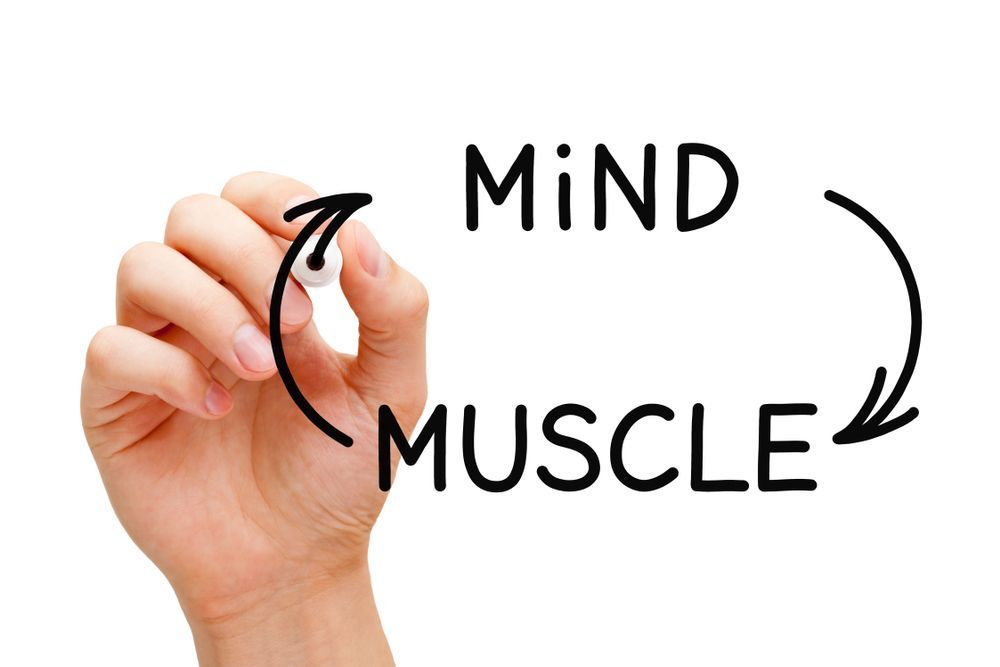B Complex Benefits for Mental Focus and Physical Performance

Medically reviewed by Micaela Strevay, FNP-C, PMHNP-BC
Table of Contents

Understanding the Role of B-Vitamins
B-vitamins are a group of water-soluble vitamins that play critical roles in the body. They are essential for converting nutrients into energy, forming red blood cells, and supporting brain health, among other vital functions. Unlike fat-soluble vitamins, B-vitamins cannot be stored in the body, which means we need a steady supply from our diet.
Each type of B-vitamin has unique functions, and they often work synergistically to ensure our body operates efficiently. When we understand their roles, we can better appreciate how they contribute to our overall health and performance both mentally and physically.
The Importance of B-Vitamins in the Body
B-vitamins are involved in several bodily processes. They help maintain healthy skin, support the immune system, and play a role in cell metabolism. For instance, Vitamin B1 (Thiamine) helps convert carbohydrates into energy, while Vitamin B12 (Cobalamin) is crucial for nerve function and the production of DNA and red blood cells.
A well-functioning body relies on the effective absorption and utilization of these vital nutrients to prevent lethargy, fatigue, and cognitive decline. Therefore, having a competent understanding of their importance is foundational to optimizing health.
Different Types of B-Vitamins and Their Functions
- Vitamin B1 (Thiamine): Essential for energy metabolism and nerve function.
- Vitamin B2 (Riboflavin): Important for energy production and the metabolism of fats, drugs, and steroids.
- Vitamin B3 (Niacin): Aids in converting food into energy and is also crucial for DNA repair.
- Vitamin B5 (Pantothenic Acid): Vital for synthesizing coenzyme A, which is essential for fatty acid metabolism.
- Vitamin B6 (Pyridoxine): Important for amino acid metabolism and neurotransmitter synthesis.
- Vitamin B7 (Biotin): Plays a key role in fatty acid synthesis and glucose metabolism.
- Vitamin B9 (Folate): Necessary for DNA synthesis and repair, and vital during periods of rapid growth.
- Vitamin B12 (Cobalamin): Crucial for nerve function and the production of red blood cells.
B-Vitamins and Mental Performance
B-vitamins are significant players in cognitive health. Research has shown that adequate levels of these vitamins can enhance various aspects of mental performance, from concentration and memory to overall mood regulation.
Given the pressures of daily life, maintaining cognitive function is imperative, especially concerning tasks that require high levels of focus and mental acuity. B-vitamins can provide an essential foundation for brain function.
Boosting Cognitive Functions with B-Vitamins
Studies have demonstrated that B-vitamins, particularly B6, B9, and B12, are linked with improved cognitive functions. These vitamins help synthesize neurotransmitters, which are chemicals that transmit signals in the brain.
Moreover, adequate levels of these vitamins can mitigate cognitive decline associated with age or poor diet. By incorporating sufficient B-vitamins, individuals may experience sharper memory and better concentration, leading to improved performance in both academic and professional settings.
B-Vitamins and Mood Regulation
Not only are B-vitamins essential for cognitive function, but they also play a pivotal role in mood regulation. Deficiencies in certain B-vitamins have been linked to increased risks of depression and anxiety.
Vitamin B6 aids in serotonin production, the "feel-good" neurotransmitter. Meanwhile, Vitamin B12 is vital for the synthesis of mood-regulating hormones. Optimal levels of B-vitamins can help stabilize mood and promote emotional well-being.
B-Vitamins and Physical Performance
Physical performance is equally influenced by our intake of B-vitamins. These vitamins are essential for energy production and muscle function, making them crucial for athletes and active individuals.
Whether you engage in high-intensity workouts or lead a sedentary lifestyle, understanding the role of B-vitamins in physical performance can help you optimize your exercise routines and recovery.
Energy Production and B-Vitamins
One of the primary roles of B-vitamins is to convert dietary energy into a usable form. B-vitamins assist in metabolizing carbohydrates, proteins, and fats, ensuring that our bodies have the necessary energy for physical activities.
For example, Vitamin B1 (Thiamine) helps in carbohydrate metabolism, while B2 (Riboflavin) and B3 (Niacin) aid in energy production by optimizing the Krebs cycle, which is essential for cellular energy generation.
B-Vitamins and Muscle Function
B-vitamins also contribute to muscle function by supporting the health of muscle tissue and reducing fatigue during exercise. Vitamin B6, for instance, is essential for protein metabolism, allowing for optimal muscle recovery and growth.
When combined with a balanced diet, sufficient B-vitamins can enhance endurance and strength, vital for anyone looking to improve their physical performance.
Deficiency of B-Vitamins: Risks and Symptoms
While B-vitamins are vital, many individuals may unknowingly suffer from deficiencies. Such deficiencies can have far-reaching effects on both mental and physical health.
Recognizing the risk factors and symptoms of B-vitamin deficiency can be crucial for maintaining well-being and performance.
Recognizing the Signs of B-Vitamin Deficiency
Common symptoms of B-vitamin deficiency can include fatigue, irritability, confusion, and muscle weakness. These signs can vary based on which specific B-vitamin is lacking.
For instance, Vitamin B12 deficiency may lead to neurological issues, while a lack of Folate can cause anemia. Understanding these signs is the first step in preventing health issues related to deficiencies.
Health Risks Associated with B-Vitamin Deficiency
B-vitamin deficiencies not only affect energy levels but can lead to severe health complications. Chronic deficiencies may result in long-term cognitive decline, heart disease, and even complications during pregnancy.
Addressing B-vitamin deficiencies early can mitigate these risks and improve overall health outcomes, making awareness and proactive dietary choices critical.
Incorporating B-Vitamins into Your Diet
To achieve optimal mental and physical performance, it's essential to incorporate sufficient B-vitamins into your diet. Focusing on whole foods and understanding your nutritional needs can make a significant difference.
Here are some practical tips to increase your B-vitamin intake.
Food Sources Rich in B-Vitamins
- Whole grains: Brown rice, oats, and whole wheat bread.
- Meat and poultry: Chicken, turkey, and beef.
- Fish: Salmon and trout are excellent sources of B12.
- Legumes: Lentils, chickpeas, and beans.
- Leafy greens: Spinach and kale are rich in Folate.
- Nuts and seeds: Almonds and sunflower seeds.
- Dairy products: Milk, yogurt, and cheese.
B-Vitamin Supplements: Pros and Cons
While it's always beneficial to derive nutrients from food, B-vitamin supplements can be helpful for those with specific dietary restrictions or deficiencies. However, taking supplements can have both benefits and drawbacks.
On the positive side, supplements can provide concentrated amounts of B-vitamins, making it easier to correct deficiencies and support overall health. However, excessive supplementation can lead to toxicity in some cases, so consulting with a healthcare professional before starting any supplement regimen is crucial.
In summary, B-vitamins are fundamental for enhancing both mental and physical performance. By understanding their roles and ensuring adequate intake through diet or supplementation, individuals can significantly improve their health and quality of life.





